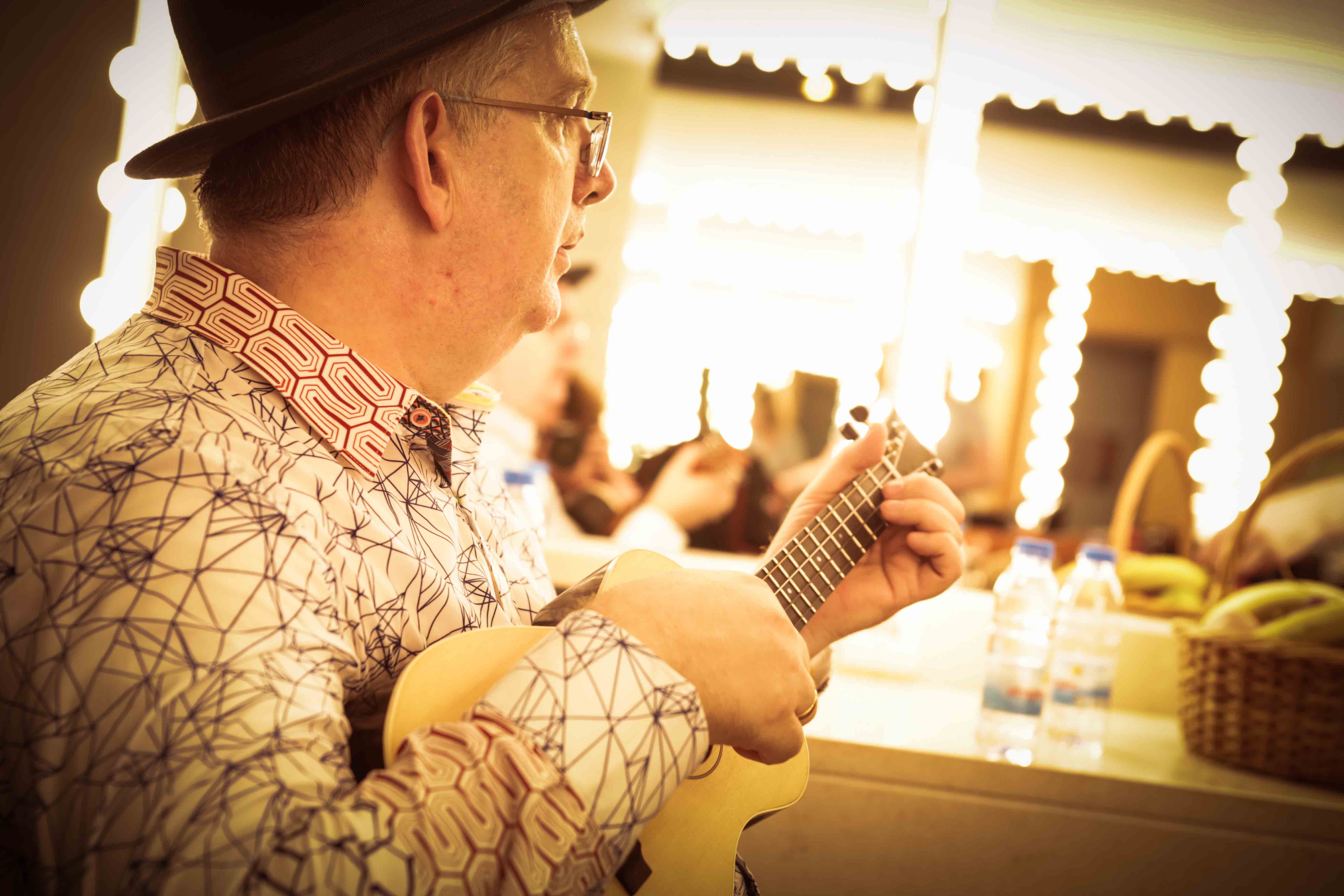
Pushing creative boundaries and taking a risk


I just returned from playing at the excellent Lagoa Guitar Festival in Portugal and have been reflecting on “the music business” and the ingredients that are needed for an artist to actually make a living as a professional musician. “Professional musicians” are of course those who make a living from playing music and that means maintaining consistent predictable income.
My background is in teaching communication skills and each year I run events in Asia, Europe and the USA. Its taken over a decade to build my reputation in this arena and I am discovering that many of the skills from this work are directly applicable to my music initiatives. This is all about “playing the long game” and creating great music is only one aspect of being successful.
I was taking recently to a great professional musician in Portugal, quizzing him on his own experience of the music business. Often people can forget that any “business” means balancing time and money. Predictable income is essential to maintain any realistic standard of living and that can be quite a challenge. I am fortunate to know a number of professional musicians and all of them are extremely hardworking having built reputations over many years. This is a far cry from the reality show style instant success that is promoted in the media, where artists are manufactured and packaged in a very specific manner. Most of these individuals quickly disappear without trace and are never heard of ever again.
I have blogged previously about artists playing for free or even playing to play at events for “exposure” Yes, I appreciate that there may be instances where it’s worth playing without financial reward, BUT ultimately its unrealistic to work without any kind of financial remuneration. Balancing the books is essential in any business and the music business is no exception. Similarly promoting festivals and other events means paying attention to this aspect. I have also blogged in the past about many such events are based more on idealism and enthusiasm than any sound business sense. In recent times two “music festivals” announced early bird options. The first one announced a long list of artists from all over the globe almost a year before the proposed event. I was amazed at the timing as this defies all conventional marketing wisdom in terms of creating audience interest. Unsurprisingly many months on these early bird discounted tickets have still not sold out. In stark contrast another festival sold out all its early bird tickets in a couple of hours without revealing a single artist! That is a great demonstration of smart strategic thinking and playing the long game which requires having a bigger vision.
Whether we like it or not, social media has become a key ingredient in playing the long game in the music business. Mediums like Facebook and Twitter are key platforms for artists to promote their work. The name of a band is also really important. I recently googled an artist name to find the artist’s site and instead found that they had chosen the same name as a well known commercial brand. This creates a confusion of identities online and of course marketing 101 tells us to secure top level domain names to protect the brand name.
Google loves content and even if you have a great band website and band name, it’s important to have good content on your site. Blogging and articles are a great way to do this. That means investment in time. I’m always amazed when artists make the comment “I don’t have time to do social media or to blog” Such folks don’t appreciate the importance of playing the long game. When I was at the Lagoa Guitar Festival I asked the promoter how he came across and why he chose to add us to such a great international lineup of artists. He came across us on social media and had looked at the band presence online.
I have also blogged on the importance of image in the music business and in playing the long game. This again means investment of time and money. Its obvious to me that professional photographs and video are a key element to creating a memorable impression. When The Small Change Diaries played Lagoa, I made sure we flew the band photographer Karen Turner out to capture the event. Below are some of the excellent photographs from this event which will be used when seeking out further festival opportunities in 2017.

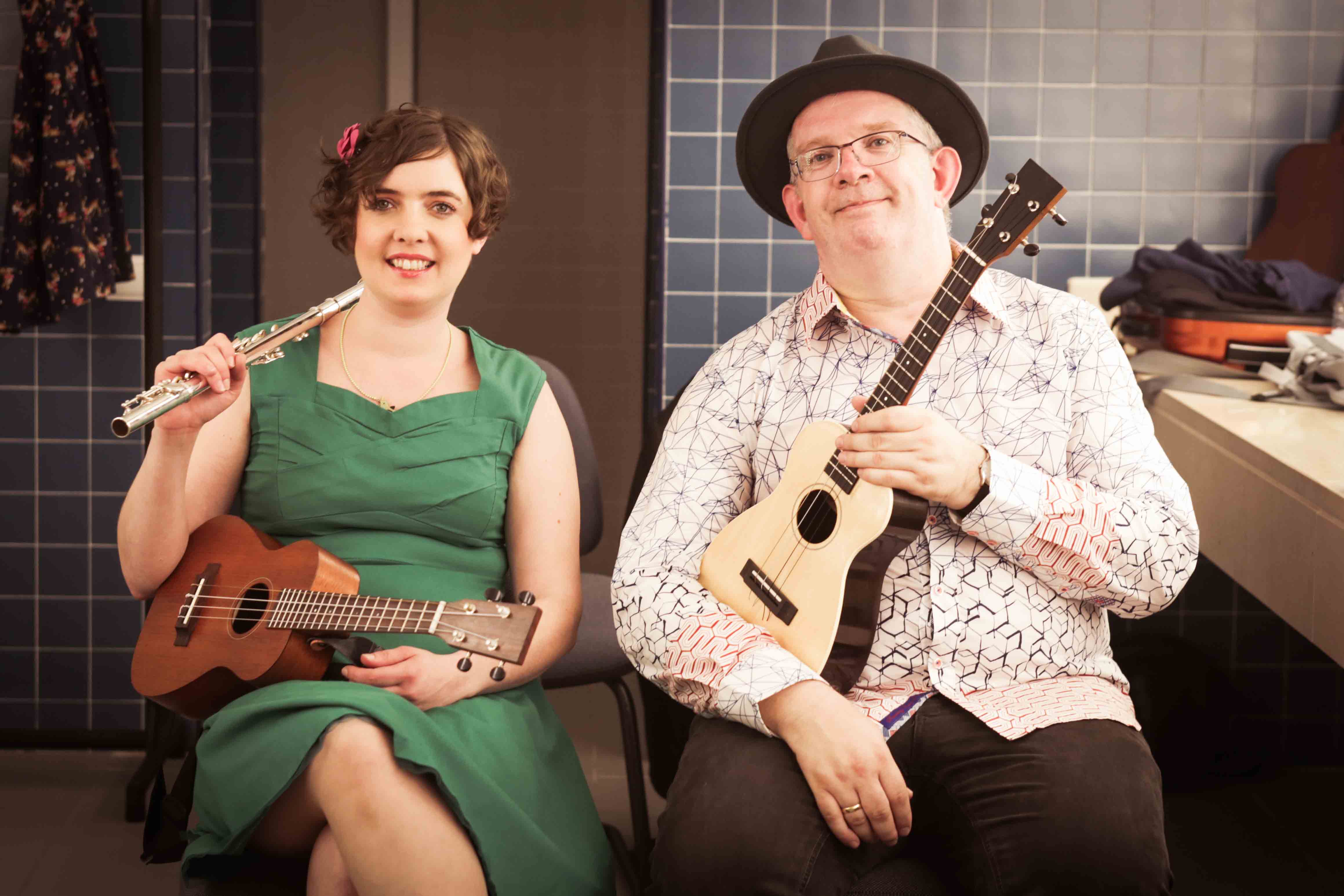
There’s an old saying “Its takes a decade to become an overnight success” Smart musicians and promoters appreciate the value of playing the long game. This requires have a great work ethic and ensuring that you align with others who have similar values. Personally I love writing and performing with The Small Change Diaries and we are back in the recording studio this month working on the second album. We have also invited a number of guests to play on the album and all such individuals are established musicians with superb creative skills.
This is one of my favorite moments, just before going on stage. Its an emotional cocktail that is quite unique as it’s impossible to know what is going to happen next. This photo was taken just before the Lagoa Guitar Festival which was a big gig for The Small Change Diaries. We played all original music and as well as singing and playing rhythm, I’m also playing solos on the ukulele in front of a big crowd. What could possibly go wrong?
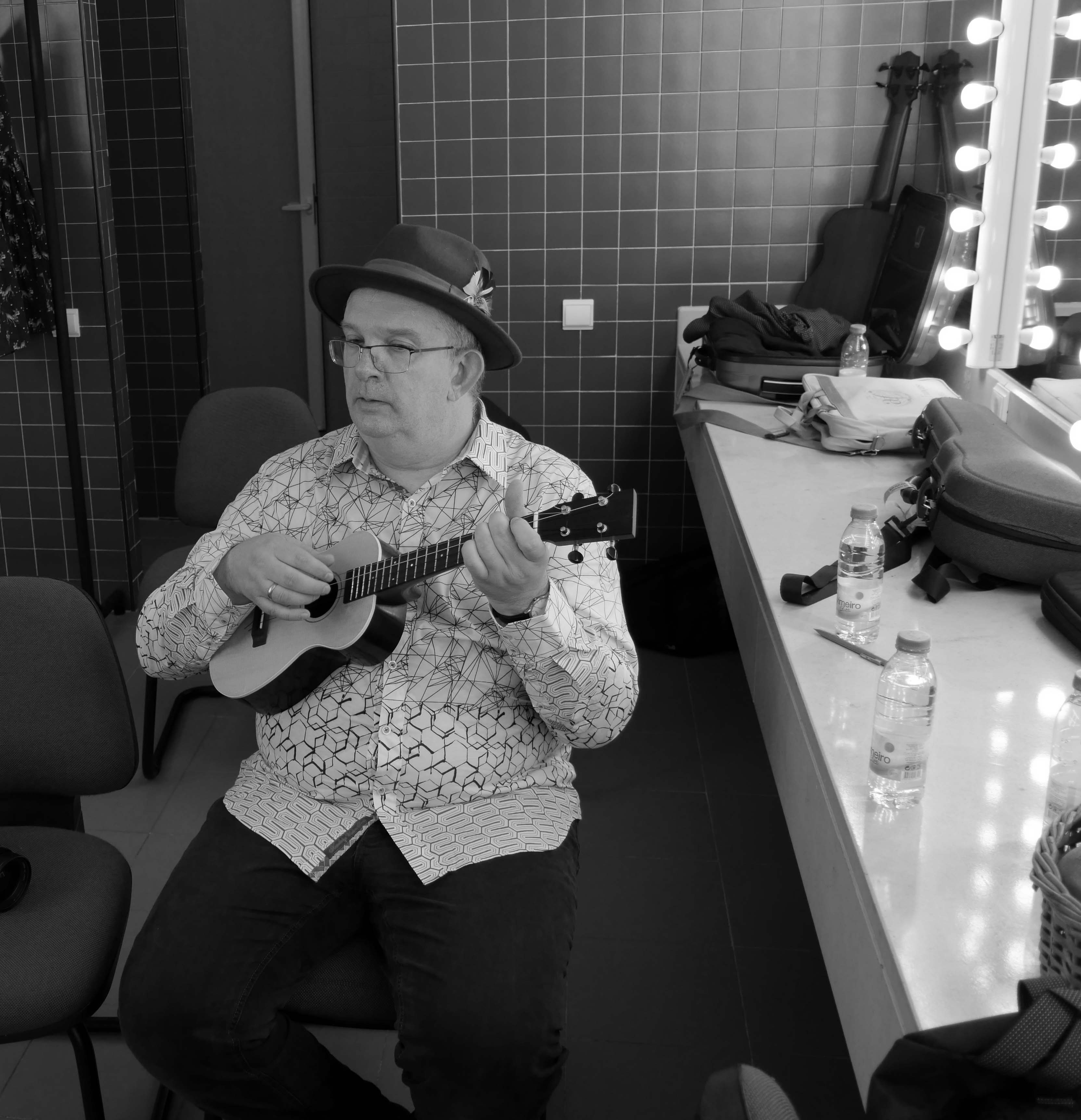
My producer once famously commented “A live gig is worth ten rehearsals” and I have realised how true this is. Audiences and venues can vary massively and I have some to have a whole new appreciation and respect for professional performers.
 On stage there are endless moving parts and the possibility of “a fuck up factor” is always surprisingly high. To date I have learned two main lessons from live gigs. The first is regardless of what happens, carry on playing and singing. The second is that even it a song goes “off road” it almost all cases NOBODY NOTICES except the musicians on stage! I recently looked at some video of a live Small Change Diaries performance and was really pleasantly surprised at how well the set was played and the overall look of the band. It’s a totally different experience being in the audience, than being on stage.
On stage there are endless moving parts and the possibility of “a fuck up factor” is always surprisingly high. To date I have learned two main lessons from live gigs. The first is regardless of what happens, carry on playing and singing. The second is that even it a song goes “off road” it almost all cases NOBODY NOTICES except the musicians on stage! I recently looked at some video of a live Small Change Diaries performance and was really pleasantly surprised at how well the set was played and the overall look of the band. It’s a totally different experience being in the audience, than being on stage.
To date the band have played a variety of different venues with an even bigger variety of “sound engineers” The best sound was when we used our own new Bose PA system and hired our producer and long standing recording engineer Carl Rosamond. The worst was a duo set when I couldn’t hear anything at all, no vocals, no sound, NOTHING! That was a somewhat surreal situation to say the least, BUT the key is carry on regardless. After all, there is really no other choice.
I was recently talking to a good friend and longstanding band singer of over thirty who sells out stadiums. He commented that he still gets nerves before gigs, but is fine as soon as he is on stage. In band situations its crucial that one member doesn’t start to trigger a chain reaction, so we don’t end up in a Clive Dunn type scenario in the classic Dad’s Army sitcom.
Playing live can summon up all manner of emotions and its an extraordinary privilege to be able to play to a live audience. At the end of this month The Small Change Diaries will be playing the prestigious 3rd Lagoa Guitar Festival. Certainly there will be no problem with space on stage looking at the photo below which I confess does start to crank the adrenalin just a bit…

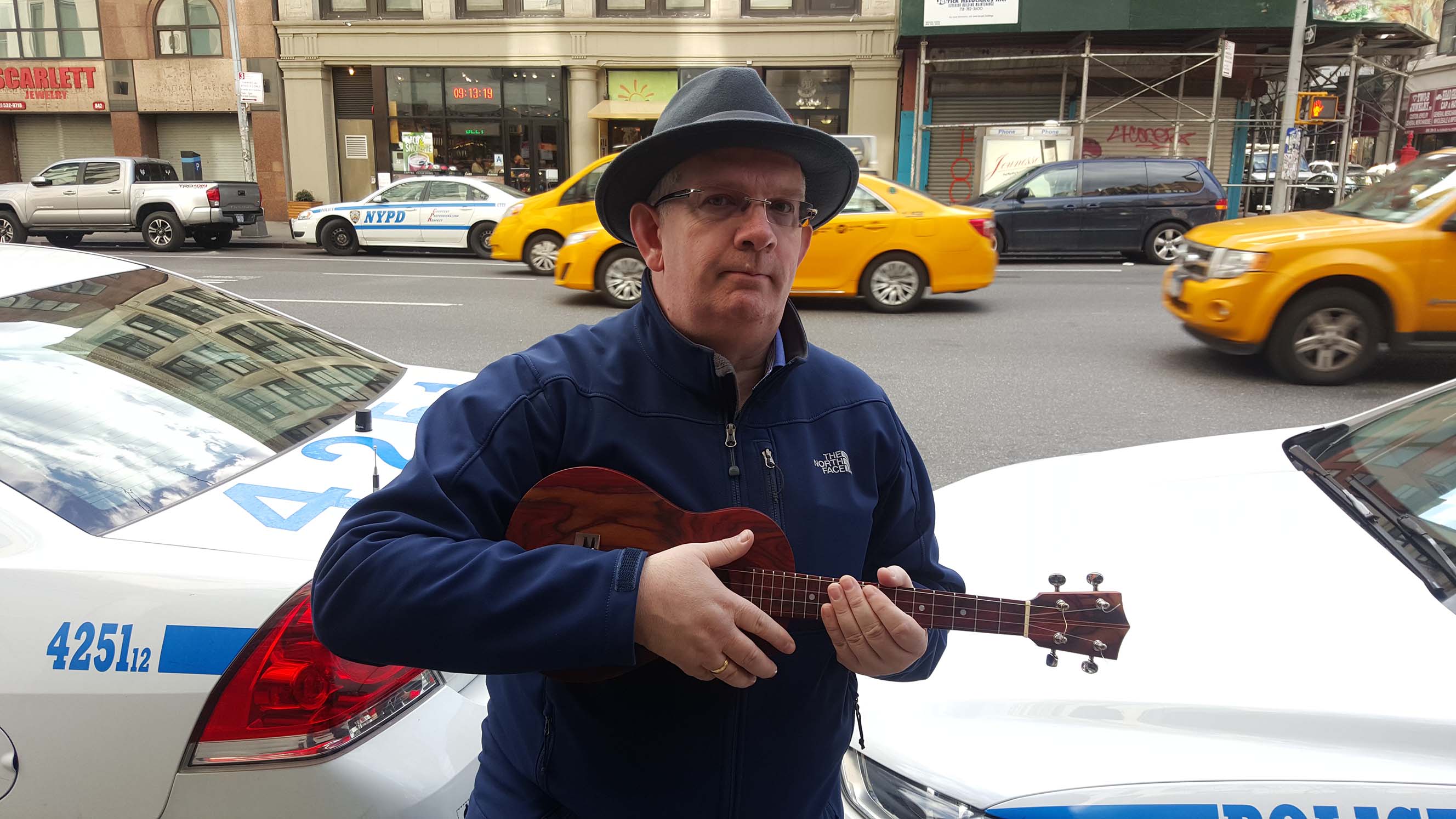
I watched a brief clip of one of the current TV talent shows recently and noticed the trend of using superlatives to describe new artists seems to be at an all time high. It seems that every third act is described as “brilliant” “star quality” and “incredible” The problem with such a liberal use of language is that ultimately all such descriptions become totally meaningless. ..In my opinion there are a very few artists that are “brilliant” or “incredible” and many of these from my experience have been developing their craft over a significant period of time. Such artists have highs and lows in their professional careers, but are constantly pushing the musical boundaries to create challenging, entertaining and inspirational original material.
My personal list of what I would call “brilliant artists” include Bob Dylan, Nick Cave, Tom Waits, John Hiatt, Neil Young and Bruce Springsteen, among others. That said each of these artists have had highs and lows. Dylan when on form can be extraordinary with albums like “Blood on the Tracks” and “Highway 61” but who is ever going to listen to his X Mas album? Waits and Cave are always interesting but I can’t help but imagine Tom’s record company groaned when he released “The Black Rider” Similarly Neil Young was sued by Geffen for making “uncommercial music and although many will favour Harvest and After the Gold rush, I think his “Ditch trio” of “On the beach” “Time fades away” and “Tonight’s the night” are extraordinary.
On a recent social media thread I commented on my personal dislike for pre teen artists on TV talent shows. I don’t blame the artist, but I do think its pretty irresponsible When an artist is “signed” the record company invests in that artist like any commercial business and like any commercial business expects a return on their investment. Yes, the artist can get massive publicity, but only a small percentage earn a substantial living as an artist. Recently I was talking to a fellow musician in New York, who commented that Alanis Morissette was touring with just one guitarist to make the tour commercially viable. Another friend of mine with over three decades in the music business is touring Australia but the record company will only fund economy class airline seats as the audiences are a mere thousand in each venue.
The problem I have with many TV talent shows is that they often promote the idea of “instant fame” and performers become almost delusional in their aspirations. This has also created from what I see more polarized opinions. Often when someone comments on such matters on social media they can be accused of “trashing” or “bashing” the performers, rather than engaging in useful and valuable discussion. Discussion and critical thinking are essential for any field to develop and I for one welcome such debates and discussion.

In part 1 of this subject I talked a lot about mostly established artists who were “in the music business” . The common themes I observed is that these artists playing at all levels had a very strong work ethic, and usually ensured that they had multiple income streams to support everyday living. They all were great as musicians, but that’s not enough to generate enough income to support yourself.
Even if you have brilliant musical skills and excellent songwriting, there still has to be a delivery system that connects with the wider world. As I said in the first part of this article, the advance of social media and online distribution are two edged swords. I set up Original Ukulele Songs as a project partly to explore this aspect. Originally it was just a FB platform and once we hit 1000 members I added the official site http://www.originalukulelesongs.com. The project continues to gather momentum and in my view this is for two reasons. Firstly it’s very niche and there’s nothing like it on this scale. Secondly I have spent a fair bit of time promoting it to crucially it captures artist and listener’s attention. That’s great, and although it’s not directly generating income it is creating greater awareness as the platform becomes a focus for original material.
Napoleon once said “Imagination rules the world” and certainly capturing imagination is essential in marketing. As I have always said “Difference dictates” so if you want to stand out as an artist you have to be different. This means in the visual medium as well as the actual music. Video, photos etc are essential in creating visual as well as auditory impact. Amazingly many artists don’t invest in good websites even though this is relatively inexpensive these days. Steve Krug’s “Don’t make me think” is the go to book for learning how best to present a website to capture attention.
All these ingredients help with building a profile which in turn helps in getting live opportunities. When setting up The Small Change Diaries, I was very conscious that we needed a good website and good social media presence. In order to stand out we also use Karen Turner as our band photographer and Max Wootton as illustrator. Both these skilled folks help create a very specific image which helps to make us different. When we had our first play on BBC Radio, Alan Raw commented on the fact that we could be found “everywhere” on social media! All of the above don’t generate hard cash, but they do help with building credibility. Our first overseas paid festival appearance came from being noticed online and that’s down to these efforts.
My own experience is that as an artist, its crucial to invest in what you are doing. These investments are in time and money. I allocate three hours rehearsal time as a minimum every week and have done so for the last three years. I have also funded the studio time and CD releases to build credibility and awareness of the band. The time investment can be significant. I estimate that I spend 15 – 20% of my working week on social media, blogs etc to maintain a presence online. Many artists will bemoan that they don’t have time to blog and be on social media, failing to appreciate that this is “playing the long game” and essential in building awareness.
Ultimately, for me it’s essential to love what you do. My experience to date, having run some very successful non music businesses is that the principals are very similar. You have to be focused and organized if you want to create something of substance. Many artists imagine that once they have recorded a CD, the work is done! Of course that’s just one small step in a much bigger process that requires ongoing attention. Income will come from lining up all these elements, and writing original material will be a big part of generating potential revenue. Hats off to all artists that dedicate themselves to creating great music. Many of my favorites are not the most well known performers and I suspect not especially wealthy in terms of money. They do however continue to entertain and inspire myself and many others and I for one are supremely grateful.

“I recommend my students not to be professional unless they really have to be. I tell them, ‘If you love music, sell Hoovers or be a plumber. Do something useful with your life.”
Robert Fripp
This may seem a bit harsh but the public perception of what it’s like to be a professional performer is very different from the reality that many imagine. I say “professional performer” as the commercial reality of needing to earn an income from music means a whole bunch of very specific considerations.
This year I have had the opportunity to talk to a number of established musicians and ask the business aspect of “the music business” and especially the ability for artists to earn a living. Often members of the public have the incorrect perception that performers are earning millions of pounds and living in mansions or at the very least detached houses. The reality is of course very different and even the most established international artists have to work at an extraordinary rate a respectable living.
The observations in this article come from talking to three different artists. One plays UK gigs but is not a fulltime musician. The other is an international artist who has won numerous awards and is respected as one of the most skilled musicians in his genre. The third one fronts a band that tours internationally and has literally sold millions of albums worldwide. The second two artists both have longstanding record deals. What all three artists have in common is a serious work ethic and our conversations have really highlighted that earning even a modest living form being a musical artist is no easy matter.
When many people see reality shows like “The X Factor” and hear talk of major financial opportunities, they imagine that the artist becomes instantly wealthy. The reality is of course very different. Back in 2011 The Guardian had an article on this very issue with some interesting observations
“The X Factor has dropped the “£1m recording contract” top prize. Apparently this happened in 2009, but contestants were sworn to secrecy, so the change has only now come to light. The contracts this year’s finalists have been asked to sign give them an advance of “just” £150,000 for their first album, according to the Sun. The advances for the follow-up albums increase by just under £100,000 with every release, which means the act would have to release four albums to earn a million pounds. No act has so far managed to reach that point before being dropped.”
Robert Fripp released a series of audio books talking about both music and the music business which are quite fascinating. On one of these he lamented any news of bands signing record contracts from his own personal experience as an artist. He spent years battling his old record company over contract issues and until recent times all but retired from performing as an artist.
“When a record company makes a mistake, the artist pays for it. When a manager makes a mistake, the artist pays for it. When the artist makes a mistake, the artist pays for it.”
Robert Fripp
The internet and downloads have been a game changer for performing artists. The good news is that any artist can put music online. The bad news is that any artist can put music online. The two artists I talked two both have very niche followings created over a long period of time. There’s an old saying in show business “It takes ten years to become an overnight success” Many performers simply don’t have the stamina. I remember in 1970s reading that guitarist and lead singer for the band Television was still working part time in a New York book store even when the highly acclaimed album “Marquee Moon” was released. Many performers today I know supplement their incomes from private teaching especially when for every CD sold they may earn just a few percent. That percentage will of course be even less if they are not the writer of the material.
One of the ways to generate substantial income is to have one of your songs featured in a blockbuster movie. This happened to Nick Lowe with “What’s so funny about peace, love and understanding”
“In 1992, this was covered by Curtis Stigers for the Whitney Houston film, The Bodyguard. The film’s soundtrack album went on to sell 44 million copies worldwide, landing Lowe a large royalty check. Lowe told The Telegraph: “It was a tremendous piece of good fortune. I made an astonishing amount of money from that.”
Rumor has it that Lowe opened up his mail to discover a cheque for 1m dollars from this particular track!
Of course this particular occurrence is a combination of the right song in the right place at the right time. That’s not in my experience an everyday occurrence!
The average working artist needs to build up their own client base to generate public awareness that can ultimately translate into actual cash. For most musicians this means taking the long view in terms of playing live and choosing the right gigs. It’s easy to be busy and earn zero money from live performances as promoters assure you “It’s great exposure” BUT that doesn’t pay the bills. Merchandise has also become a great source of income and its clear to me that artists need to have a distinctive image that is as recognizable as their music.
My own experience is that having access to and/or generating money can make a massive difference. My international friend talked of studio time being a thousand pounds per day, so the record company can have you in hock for a very long time. I think it’s possible to earn money from being a musician, but you need multiple income streams and predictability of income is invaluable. Residences and regular festivals can make a big difference. Being an independent artist can assure you of better unit value for CDs but you have to use your own promotional methods and companies like Ditto and CD Baby can be invaluable. Ultimately in my view you have to love what you are doing for everything to ultimately work out, both financially and musically.

 There’s in my opinion an unfortunate trend on the music scene where performers are expected to work for “exposure” also known as working for no financial remuneration. I hear now that some music festivals even expect performers to pay for the privilege of attending for the benefit of “exposure!” Yes, in some situations an artist or band may benefit from agreeing to waive a fee for an appearance, but if this becomes a common trend then often the only exposure you’ll get is exposure to potential financial ruin, unless you have a rich benefactor or a secondary income. I can’t imagine many areas of life where skilled professionals would be asked to work in this way!
There’s in my opinion an unfortunate trend on the music scene where performers are expected to work for “exposure” also known as working for no financial remuneration. I hear now that some music festivals even expect performers to pay for the privilege of attending for the benefit of “exposure!” Yes, in some situations an artist or band may benefit from agreeing to waive a fee for an appearance, but if this becomes a common trend then often the only exposure you’ll get is exposure to potential financial ruin, unless you have a rich benefactor or a secondary income. I can’t imagine many areas of life where skilled professionals would be asked to work in this way!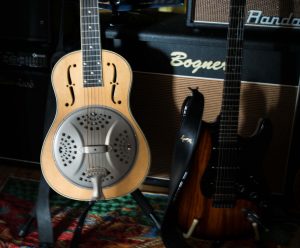 In these tougher economic times both performers and promoters need to work harder to maintain a viable presence. I am fortunate to know some international artists and know just how hard they have to work. There is often a constant demand from the record companies for them to create new material of a high standard. The most successful artists have great stamina and immerse themselves in their work, while at the same time paying attention to the details of how they conduct their business. This means balancing time and money. Its wonderfully naïve to suggest that money doesn’t matter, but without a predicable income stream life becomes pretty problematic on many fronts. A good friend of mine who fronts a major international and currently on tour has a grueling schedule for media appearances and gigs. It’s certainly not an easy life and not for the faint hearted! He’s been doing this for three decades and I have seen go though some really tough times. He stuck with it and new is selling out stadiums as well as having top 3 album positioning.
In these tougher economic times both performers and promoters need to work harder to maintain a viable presence. I am fortunate to know some international artists and know just how hard they have to work. There is often a constant demand from the record companies for them to create new material of a high standard. The most successful artists have great stamina and immerse themselves in their work, while at the same time paying attention to the details of how they conduct their business. This means balancing time and money. Its wonderfully naïve to suggest that money doesn’t matter, but without a predicable income stream life becomes pretty problematic on many fronts. A good friend of mine who fronts a major international and currently on tour has a grueling schedule for media appearances and gigs. It’s certainly not an easy life and not for the faint hearted! He’s been doing this for three decades and I have seen go though some really tough times. He stuck with it and new is selling out stadiums as well as having top 3 album positioning.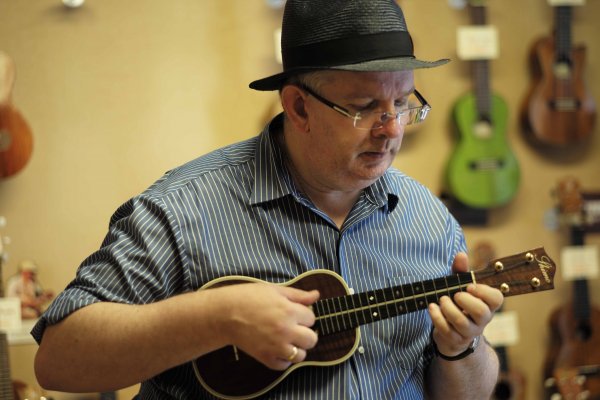
 I have become increasingly aware of the importance of “image” in music promotion. I grew up listing to music in 1970s which in my view was the golden era for music songwriting. I remember David Bowie playing “Starman” on Top of the Pops, which was literally unlike anything anyone had seen before. Fortunately, the visual image was as captivating as the music which has stood the test of time many decades later. During the same era Alice Cooper was similarly considered highly controversial with a carefully formulated rock image and Alice is still selling our concerts today…
I have become increasingly aware of the importance of “image” in music promotion. I grew up listing to music in 1970s which in my view was the golden era for music songwriting. I remember David Bowie playing “Starman” on Top of the Pops, which was literally unlike anything anyone had seen before. Fortunately, the visual image was as captivating as the music which has stood the test of time many decades later. During the same era Alice Cooper was similarly considered highly controversial with a carefully formulated rock image and Alice is still selling our concerts today…
Anyone involved in any music promotion or any form of marketing appreciates that image is an important aspect. Whether we like it or not, artists will often struggle to be heard unless this visual aspect is taken into account. Many record labels package artists in a very specific way to maximize what they regard as “their investments” I am fortunate to know some very well-known international artists, one of whom talked recently about “the dreaded photo shoot” It was obvious to me that the music business, is like any other business in that the first rule of marketing is that “difference dictates”. If you don’t stand out from the crowd, then essentially you are just the same as everybody else and probably won’t he heard above “the noise”
Online there is an increasing trend of what I would respectfully describe as “cute” girls and boys playing ukuleles. Nothing wrong with this of course, but if you close your eyes and just listen to the music on its own, its rarely original and really not that great. The ukulele is all too often more like a prop than a musical instrument for creative expression, which I think is a real tragedy. The uke is a magical instrument that is in my view like no other and quite brilliant for songwriting. To reduce its function to a stage prop is criminal and such folks should be placed in the village stocks and pelted with appropriate amounts of rotten fruit.
On the Original Ukulele Songs site (www.originalukulelesongs.com) there are all manner of really great artists that do far more than simply pose with a uke. These artists have taken the time to really develop something original. From what I see many are hardworking and really care about their craft. I saw one female artist online who has a nice voice, but all the videos were of her in a bikini (often on a beach), which I thought more than a bit odd…
My absolute pet hate is carefully choreographed pouting artists. Amazingly many of these can have significant video viewings but the material is in my view just pretty bland. The ukulele is a wonderful instrument for great sonic explorations. Increasingly there are artists who are really showcasing just how expressive this instrument can be. While I may not always love the music (give me three soulful notes rather than a technical flurry of 30 notes!) the best artists have a real passion for what they are doing and a definite musical point of view. Bravo to all such folks, whose songs will I suspect be around decades to come.
Best Regards
NC
(If you don’t like these views, I do have others)
